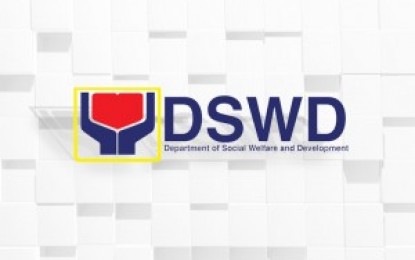
MANILA -- The Department of Social Welfare and Development (DSWD) said some 341,757 households were already delisted from the Pantawid Pamilyang Pilipino Program (4Ps) due to attrition or those whose households no longer have eligible children for monitoring.
In an interview on Tuesday, 4Ps National Program Management Director Gemma Gabuya, said that 4Ps has already served 4.88 million households around the country as of Nov. 30, 2019.
“Through this course, several households have exited the program for various reasons and 341,757 of them have exited due to attrition meaning all the children in those families have already graduated,” she said.
"There are also 34,513 households formerly included in the program but has voluntarily waived because “nakaangat na sila ng konti (their financial status have improved),” Gabuya added.
On Tuesday, DSWD Secretary Rolando Bautista and eight partner government agencies have signed the implementing rules and regulations (IRR) of the newly enacted 4Ps Law.
4Ps milestones
Since its inception in 2008, 4Ps have invested in human capital focusing mostly on its beneficiaries’ health, nutrition, education, and family development.
From an initial 321,380 household-beneficiaries during its pilot stage undertaken in 160 cities and municipalities, and 28 provinces from all 17 regions back in 2008, DSWD, as the lead implementing agency, said it takes pride in the expansion of the program within a span of only 11 years.
Based on the Program Implementation Status Report for the first quarter of 2019, 4Ps is now implemented in 144 cities and 1,483 municipalities in 80 provinces from all 17 regions with the number of household-beneficiaries growing to 4,876,394.
With the IRR, 4Ps is on its way towards covering more poor households, providing livelihood opportunities, and extending higher cash grants.
Impact evaluation report
On the Impact Evaluation Report produced every three years by the agency and partner organizations World Bank, Australian Aid, and Asian Development Bank, it indicated the success of 4Ps in keeping Filipino children healthy and in school.
Some of the key findings of the study cited that the Pantawid Pamilya program encourages trial use of modern family planning methods, promotes facility-based deliveries and access to professional postnatal care, and improves children’s access to some key health care services.
Among Pantawid beneficiaries, the study said about nine in 10 households are covered by the PhilHealth insurance program.
It also mentioned that Pantawid Pamilya keeps older children in school and Pantawid children work seven days less in a month compared to non-Pantawid children.
It added that Pantawid Pamilya increases households’ investments in education, does not encourage dependency or spending more on vice goods, and allows parents to aspire for a better future for their children.
The digital copy of the report can be accessed here: https://pantawid.dswd.gov.ph/wp-content/uploads/2018/07/Pantawid-Pamilya-Impact-Evaluation-2014-Report-Final.pdf. (PNA)
